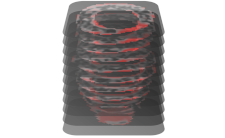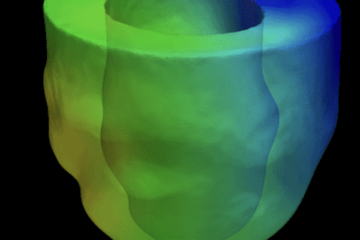‘Digital twins’ of patients’ hearts harness personal genetics to inform disease management
A multidisciplinary team of computational and clinical researchers from Johns Hopkins University, led by Yingnan Zhang, a Ph.D. candidate at Trayanova Lab, has made significant strides in cardiac research through the development of an innovative strategy called the “genotype-specific digital twin” (Geno-DT). This cutting-edge approach involves integrating personal genetics into a virtual replica of a patient’s heart to gain crucial insights into cardiac pathophysiology.
The study represents a collaborative effort between engineers from Trayanova Lab and clinical geneticists and electrophysiologists from the ARVC research group led by Dr. Hugh Calkins at Johns Hopkins Hospital. These collaborations have been achieved through the mission of the Alliance for Cardiovascular Diagnostic and Treatment Innovation (ADVANCE), spearheaded by co-directors Dr. Natalia Trayanova and Dr. Hugh Calkins.
The noteworthy achievements of this research have garnered attention, resulting in its selection for a press release by eLife. The paper detailing the study’s findings is available here.


